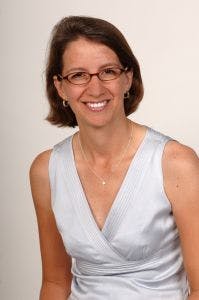Rebecca Richards-Kortum named 2016 MacArthur Fellow for translational research in bio
Rice University (Houston, TX) bioengineer and global-health pioneer Rebecca Richards-Kortum has received a coveted MacArthur Fellowship, and was one of 23 2016 MacArthur Fellows named by the John D. and Catherine T. MacArthur Foundation. MacArthur Fellowships, which come with a $625,000 grant, are chosen for "exceptional creativity, as demonstrated through a track record of significant achievement, and manifest promise for important future advances," according to the foundation.
Related: Bioimaging expert Richards-Kortum is named 2016 Pierre Galletti Award winner
Richards-Kortum, Malcolm Gillis University professor of bioengineering and professor of electrical and computer engineering, is the first Houston scientist, the first Houston woman, and the first Rice faculty member to win the award.
Richards-Kortum joined Rice in 2005 and directs the Rice 360° Institute for Global Health, which offers innovative undergraduate programs that engage students to design and implement new technologies to solve actual global-health challenges. Since 2006, Rice 360° has partnered with Queen Elizabeth Central Hospital in Blantyre, Malawi, to evaluate dozens of affordable health care technologies developed by Rice students, including several that are commercially available worldwide and more that are widely used throughout Malawi.
When Richards-Kortum and Rice 360° co-founder Maria Oden were recognized with the 2013 Lemelson-MIT Award for Global Innovation, they used their $100,000 prize as seed funding for a campaign to build a new neonatal ward at Queen Elizabeth Central Hospital, which was dedicated in June 2016. In addition to providing patient care for thousands of newborns each year, the new neonatal facility will serve as an innovation hub for Neonatal Essential Solutions and Technologies (NEST), a turnkey package of affordable neonatal technologies that could slash newborn deaths in low-resource hospitals by more than 80%. More than half of the technologies needed for NEST are in development at Rice, and Rice 360° hopes to make the full suite available to low-resource district hospitals within a decade for a total cost of less than $5000.
Richards-Kortum’s laboratory in Rice's BioScience Research Collaborative specializes in translating research in nanotechnology, molecular imaging, and microfabrication to develop optical systems that are inexpensive, portable, and capable of providing point-of-care diagnoses for diseases ranging from cancer to malaria. Her research has led to the development of 40 patents, and she is the author of the textbook Biomedical Engineering for Global Health published by Cambridge University Press (2010) as well as more than 300 refereed research papers and 11 book chapters. She also is the youngest Rice faculty member elected to the National Academy of Engineering.
For more information, please visit http://bioengineering.rice.edu/faculty/rebecca_richards-kortum.aspx.

